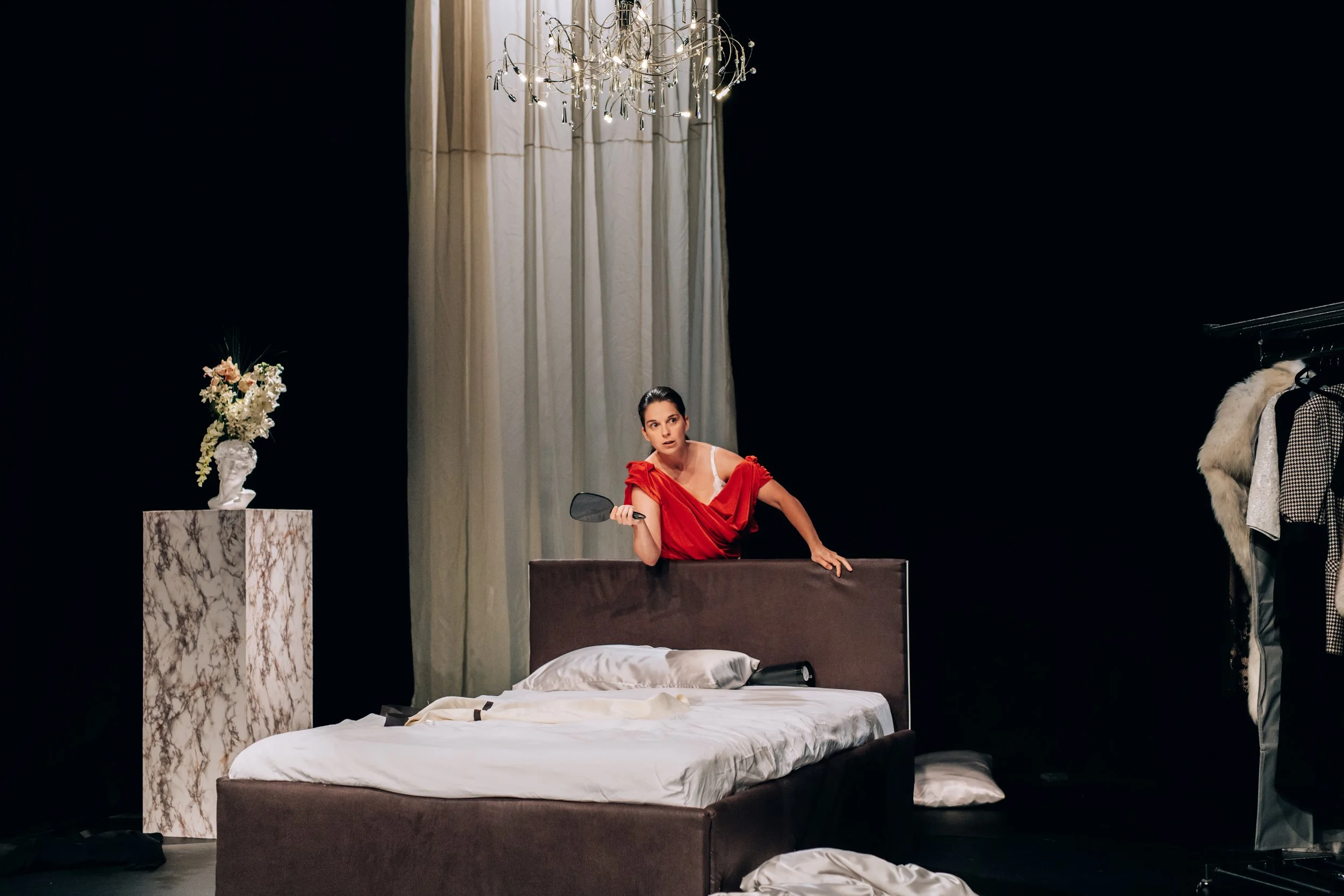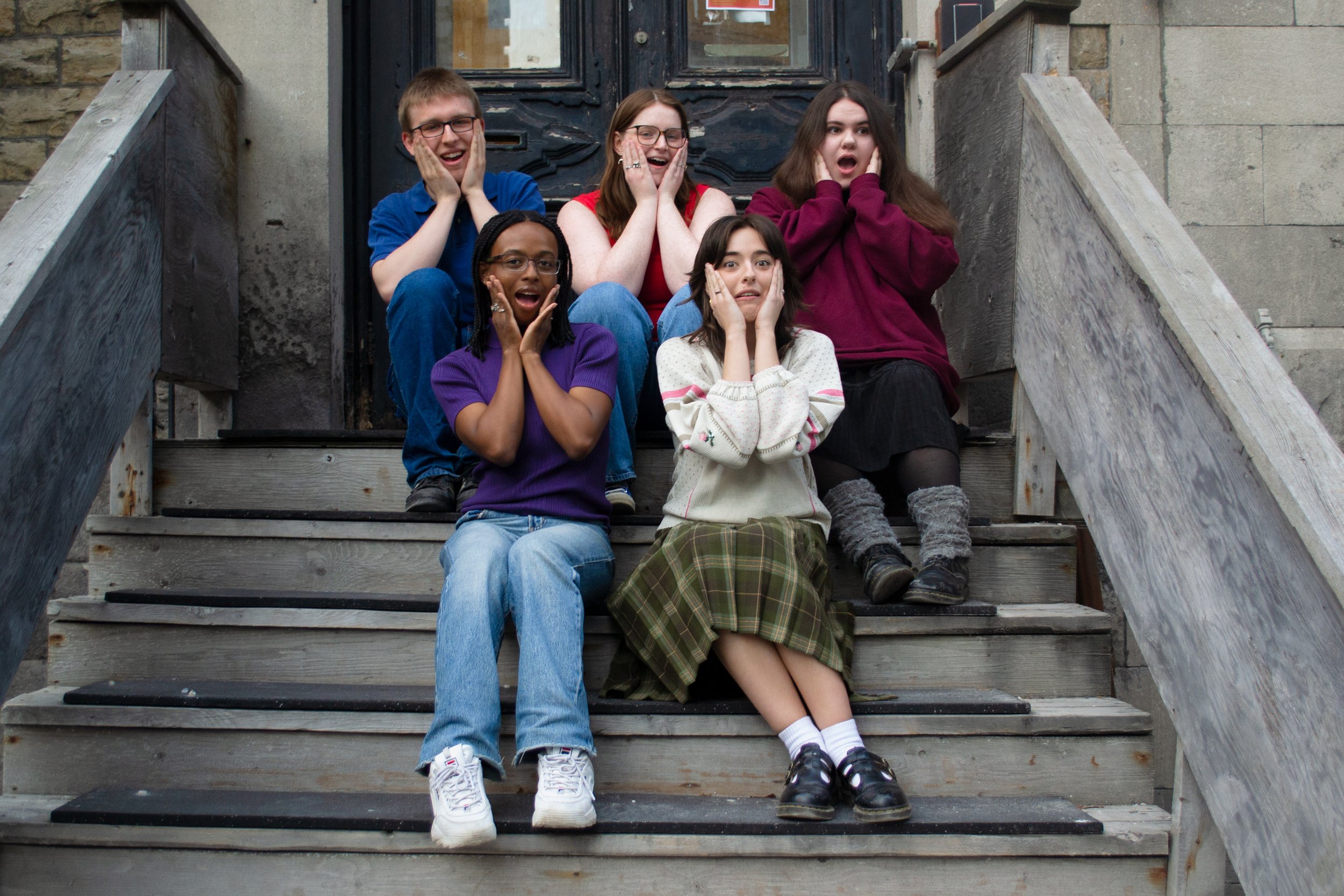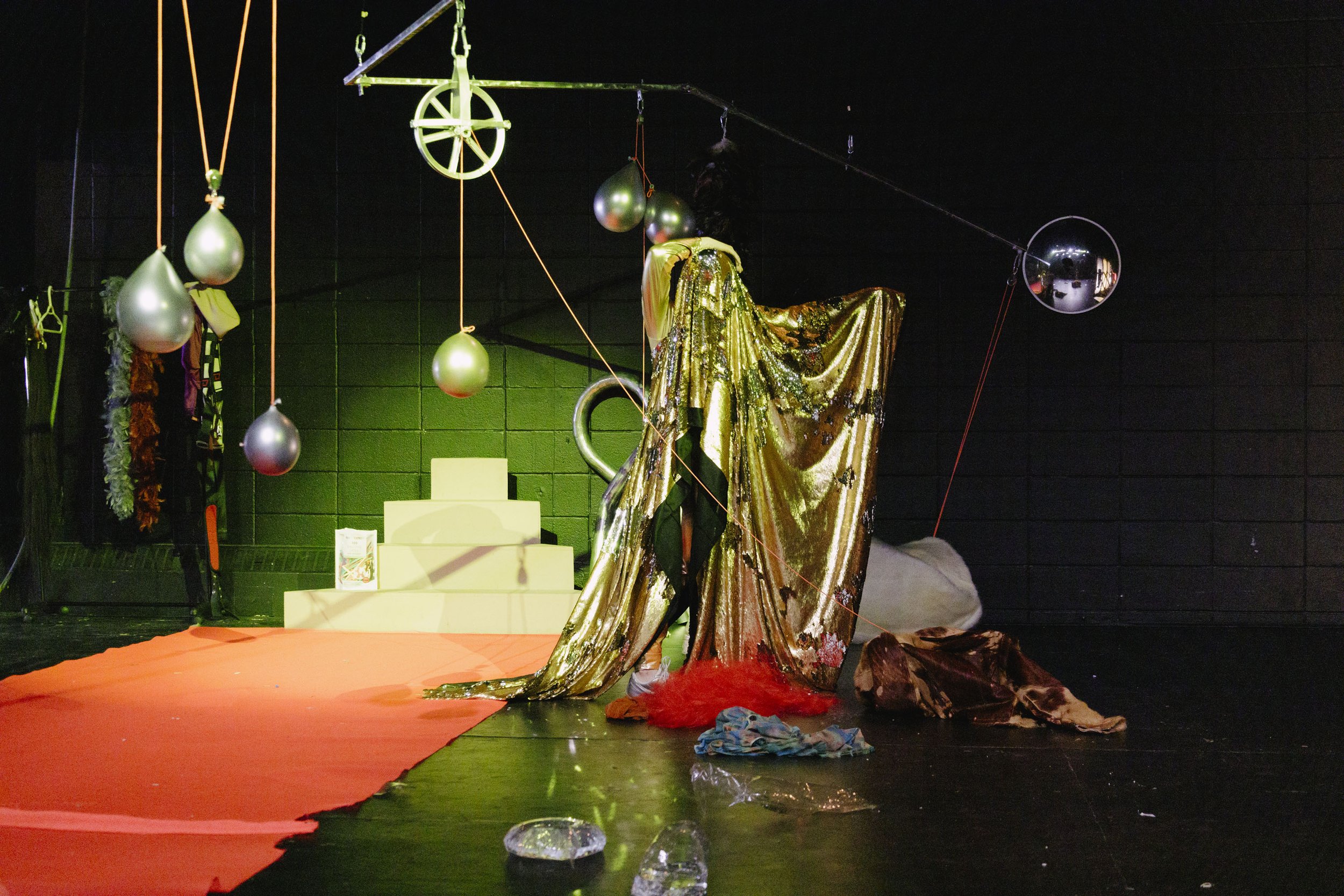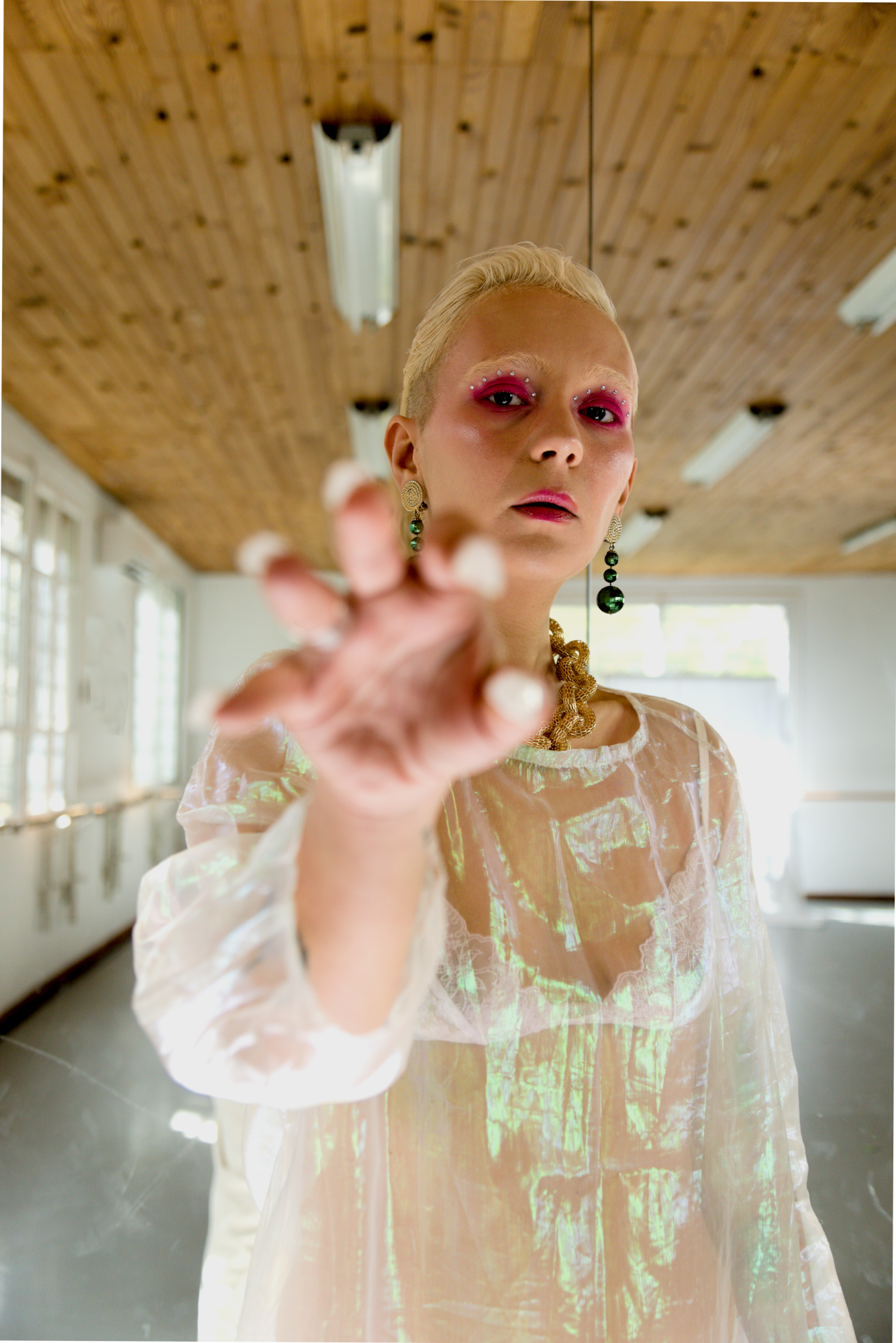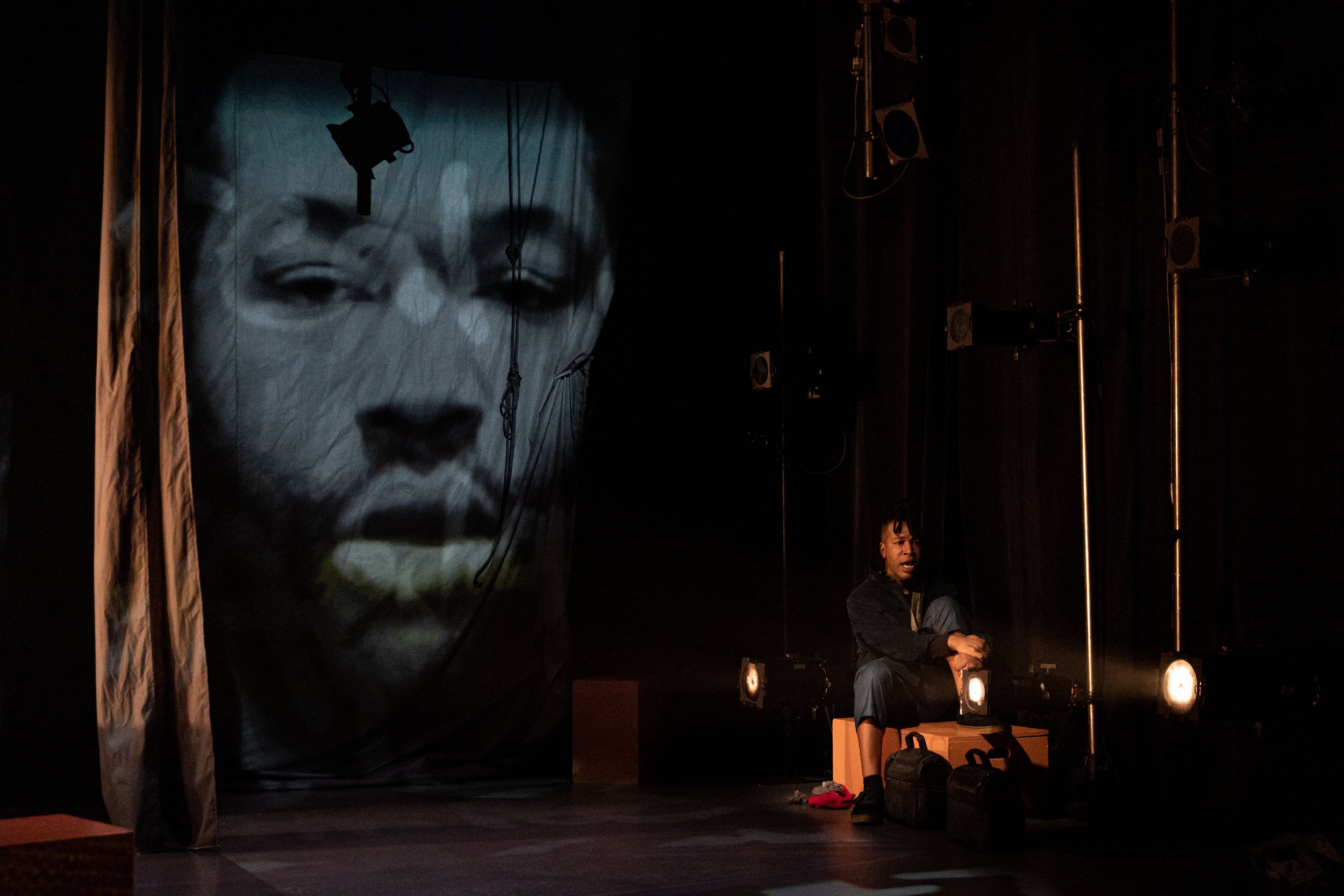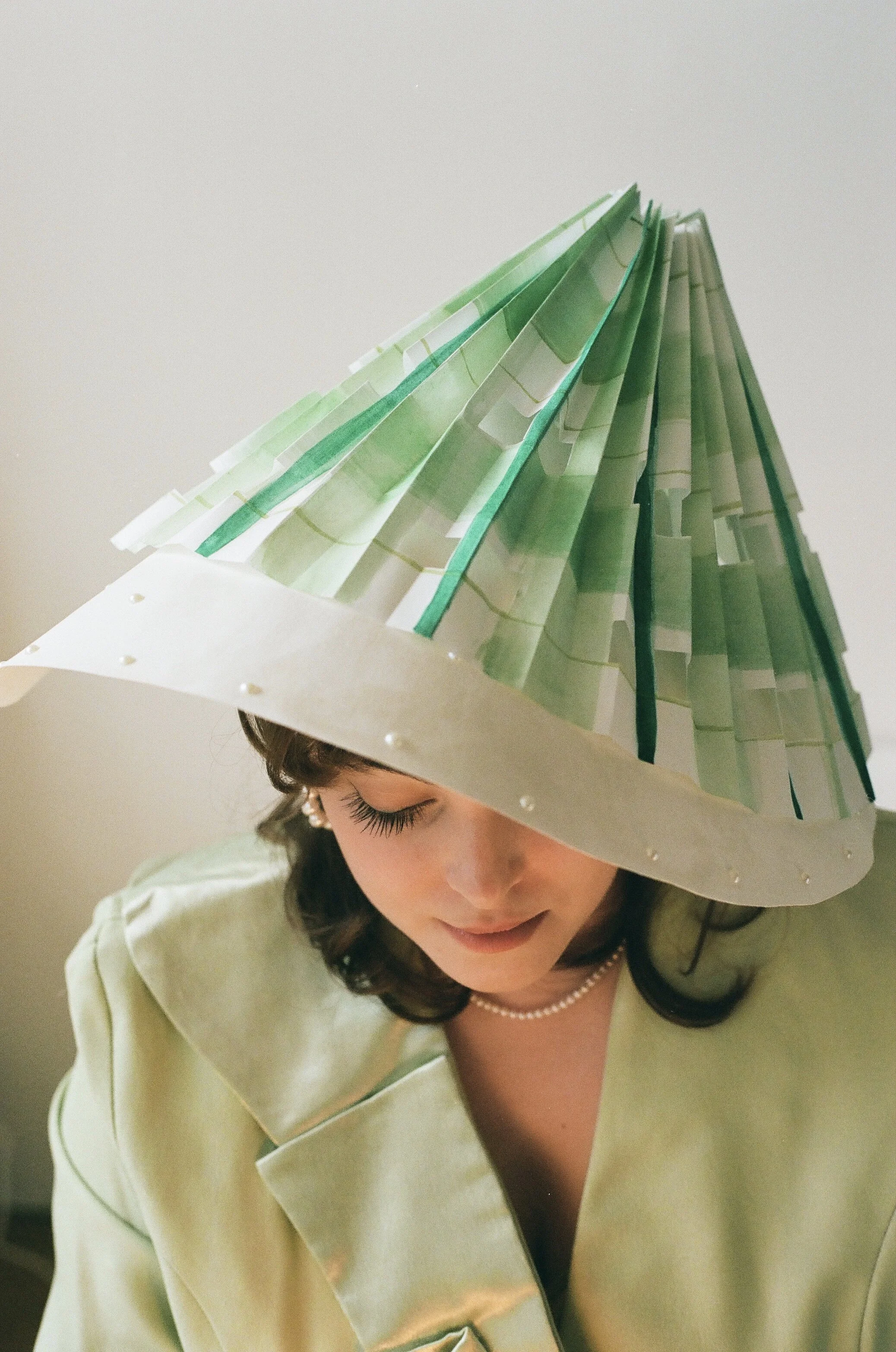Proje(c)t; Les Bonnes - Language & power dynamics through an adaptation of Jean Genet's 'The Maids'
Image by Phanie Ethier
This weekend, we’re especially excited to catch the play Proje(c)t; Les Bonnes, running at Centaur Theatre’s Wildside Festival from January 26th-29th.
Proje(c)t; Les Bonnes is an adaptation of Jean Genet’s The Maids, presented in a format crossing time and language and praised for its “diabolical weirdness”. The play is performed in French, English, and Spanish, with English subtitles provided.
Roxane Loumède, the play’s director and adaptor, describes the show as, “strange, sexy and excitingly terrifying. It can make you uncomfortable, but that’s the point.”
The play revolves around two women, Solange and Claire, who work for a wealthy Westmount woman referred to as Madame. While she is out, they spend their evenings enacting different plots to murder Madame, until this ritual backfires. Loumède jokingly notes, “you’ll have to come and see the show to find out what happens next.”
Last week, we had the lovely opportunity to meet Loumède and discuss how this play came to be, and what incited the different elements of her adaptation, like language politics, power dynamics, and wealth.
On bilingualism in theatre practice
Roxane Loumède: It all started when I finished at Concordia in 2015. I graduated from an English school, but I was a Francophone. I was not really in the English or French communities, just in a weird in-between, so I wanted to start creating my own work.
I decided to start workshopping and thinking about bilingual theatre, where using French and English would serve the narrative and the dramaturgy of the piece. That way, I could bridge the gap and hire people that I wanted to work with from both the English and French communities.
I worked on Jean Genet’s The Maids at Concordia as a performer. I thought about what it means to bring a piece from the 1940s to the stage, and how to do so, whether or not the play is outdated. It’s a story that talks about how these two maids are serving this really wealthy woman. When it was written in the 1940s, Montreal was in a place where the Anglophones had more money than Francophones. So I thought, if I put this in the original time period, then the Madame would be an Anglophone, and the two maids would be Francophones.
Image by Phanie Ethier
On starting the process and adapting the text
RL: When I got some money and a team together in 2018, I started workshopping the piece and rewriting the text in French and English, and also rewriting from French from France to French from Quebec, which is different. I used more of an older “Canadian English” for the Madame.
I asked myself, “Today in Montreal, who is more wealthy, who still has maids working for them?” And it’s not the same as in the 1940s. Now, Francophone people in Montreal have as much wealth as Anglophones. If you go into affluent homes in Outremont, or Westmount, you will find Francophone homeowners with South American domestic workers. So, thinking about that—and talking about it with the crew—I added a third language, Spanish, to the piece. This allows the play to reflect the reality of today.
One of the cast members, Camila, who has been with the project since the beginning, speaks Spanish fluently. So, it was with her that we started thinking about the idea that her character would switch from French to Spanish. We aimed to show a shift in history by indicating who is dominating, and who works for who and examining the power dynamics… While also shedding light on how the circumstances of the women working in these homes haven’t changed much since the 1940s.
In this way, the piece by Jean Genet is still really relevant today because the issues are still present—not just in Montreal. Boundaries are more or less broken most of the time because you develop a close relationship with the person you are working for, and vice versa.
Image by Phanie Ethier
On learning through Proje(c)t; les Bonnes development
RL: The Les Bonnes of 2018 and the one I’m presenting in now in 2023 is a big representation of the artist I have become. It’s really nice to work with artists who are willing to try your nonsense ideas and let you fail at them… When you say, “Sorry that was not the right choice!” they’re flexible. Being able to learn what works and doesn’t work with a team you trust makes you a better director, in my opinion.
Image by Phanie Ethier
On the viewing experience
RL: I’ve built this show so that you can understand what is going on without having to grasp all the multilingual dialog perfectly. We’ve worked a lot with movement, sound and lighting so all of your senses are very much activated. This helps bring the actors’ stage business and onstage dynamics to the forefront, highlighting the characters’ struggles.
If you’re not fully immersed in the words, you will still have a pleasant experience and get something from it. If you don’t want to spend the whole show reading the English subtitles, you can let yourself go and be fully in the action and get swept away.
Loumède’s other piece Ensaf attend was presented as a reading last summer as part of Jamais lu Festival. She has more projects in the works and you can watch this space to stay tuned!
image by Phanie Ethier
Proje(c)t; Les Bonnes runs from tomorrow, January 26th, until Sunday, January 29th at Centaur Theatre.
Adaptation and Direction: Roxane Loumède
Performers: Marie-Ève Bérubé, Camila Forteza, Alexandra Petrachuck
Assistant Dramaturg: Geneviève Gagné
Costumes: Sophie El-Assaad
Set & Props: Bruno-Pierre Houle
Lights: Catherine Fournier-Poirier
Sound Design: Joseph Browne
Video & Technical Director: Vladimir Alexandru Cara
Assistant Director & Stage Manager: Trevor Barrette
Proje(c)t; Les Bonnes
3e Espace Théâtre
Tickets | Info | Troisième espace théâtre
Holly Hilts is a Core Member of Also Cool. She is a jeweller, coder & theatre worker currently based in Montreal.

